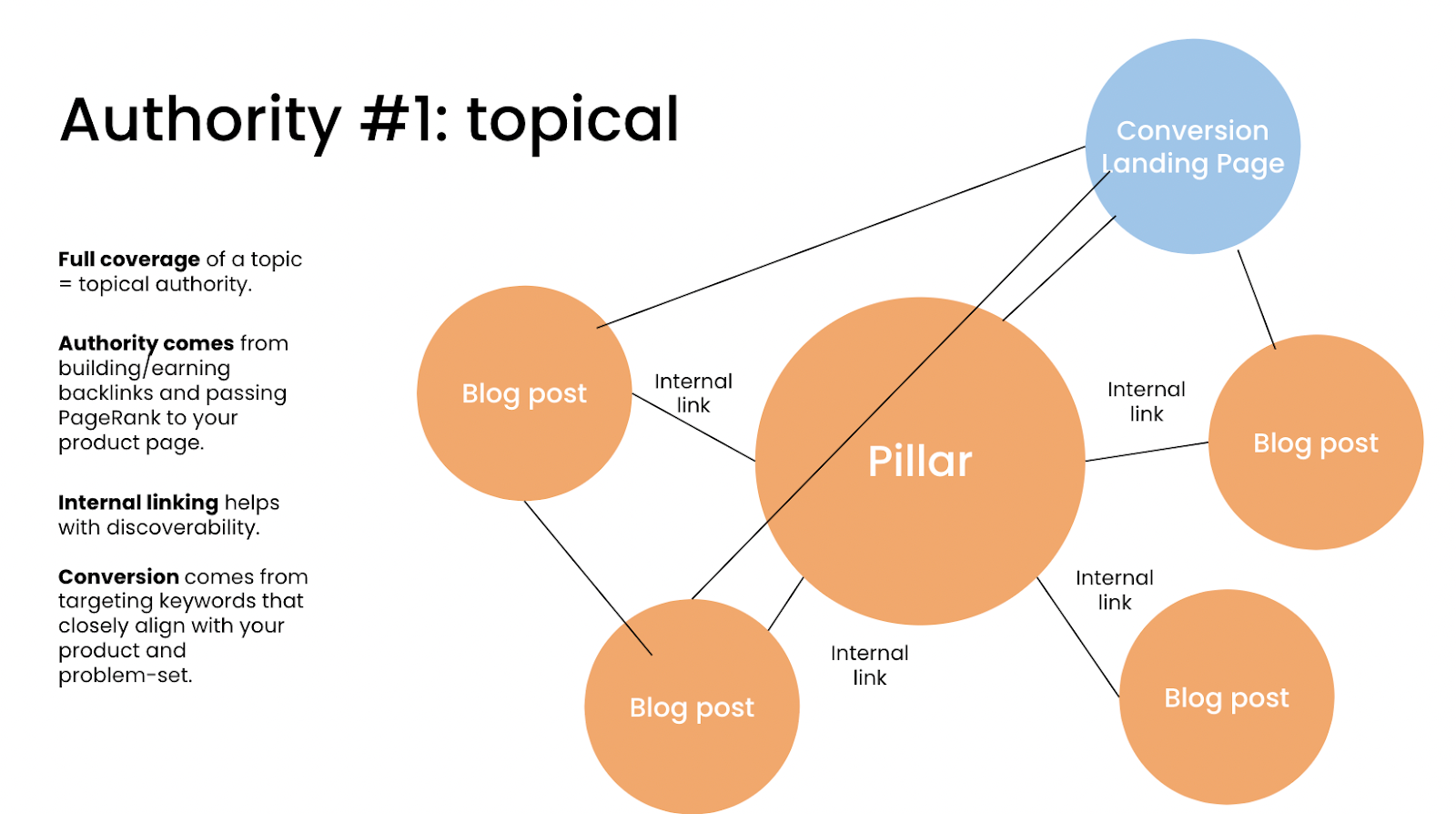Semantic search and keyword clustering are essential strategies for building topical authority, which is the demonstrated expertise and comprehensive coverage of a subject area by a website or content creator.
Semantic Search focuses on understanding the user’s intent and the contextual meaning behind search queries rather than just matching exact keywords. This approach helps search engines like Google assess the depth and relevance of content on a topic, rewarding sites that cover related subtopics and answer user questions comprehensively.
Keyword Clustering groups keywords based on semantic similarity and user intent rather than just lexical similarity. This involves analyzing how keywords relate contextually and grouping them into clusters that represent different facets or questions within a topic. Clustering can be done using various algorithms, including "soft" clustering (based on overlapping top-ranking URLs) and "hard" clustering (requiring strong connections between all keywords in a cluster), with hierarchical clustering sometimes used to merge related clusters into broader topical groups.
Together, semantic search and keyword clustering help content creators:
- Build a comprehensive content network that covers a topic and its subtopics in depth, improving topical coverage and authority.
- Align content with user intent by grouping keywords that reflect different stages of the user journey (e.g., informational, transactional).
- Improve internal linking and site structure by logically connecting related content pieces, which signals topical relevance to search engines.
- Earn higher rankings because Google’s algorithm prioritizes sites that demonstrate expertise, relevance, and helpfulness across a topic rather than isolated keyword matches.
In practice, to leverage these concepts for topical authority:
- Start with audience and intent analysis to understand what users want at different stages.
- Use semantic keyword clustering to organize keywords into meaningful groups reflecting user goals and questions.
- Create detailed, entity-oriented content that covers all relevant aspects and subtopics within each cluster.
- Implement logical internal linking between related content to reinforce topical connections.
- Continuously update and expand content to maintain and grow topical authority over time.
This approach is effective for websites of any size, as topical authority depends more on focused, high-quality content and semantic relevance than on overall domain authority or backlink quantity.
In summary, semantic search and keyword clustering are foundational to building topical authority by enabling content that is contextually rich, user-focused, and comprehensively covers a subject area, which search engines reward with better rankings and trust.




















Maple Ranking offers the highest quality website traffic services in Canada. We provide a variety of traffic services for our clients, including website traffic, desktop traffic, mobile traffic, Google traffic, search traffic, eCommerce traffic, YouTube traffic, and TikTok traffic. Our website boasts a 100% customer satisfaction rate, so you can confidently purchase large amounts of SEO traffic online. For just 720 PHP per month, you can immediately increase website traffic, improve SEO performance, and boost sales!
Having trouble choosing a traffic package? Contact us, and our staff will assist you.
Free consultation